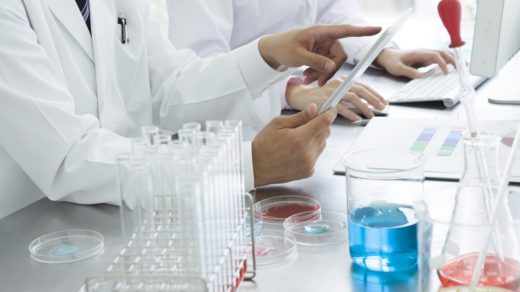The pharmaceutical industry is undergoing a significant transformation, driven by the power of big data and advanced analytics. These technologies are revolutionizing every stage of the drug discovery and development process, from identifying potential drug targets to optimizing clinical trials and improving patient outcomes.
The Role of Big Data in Pharmaceuticals
Big data in pharmaceuticals encompasses vast amounts of information from various sources, including:
- Genomic and proteomic data
- Clinical trial results
- Electronic health records
- Real-world evidence
- Scientific literature
By leveraging this data, pharmaceutical companies can make more informed decisions, accelerate research, and develop more effective treatments.
Key Applications of Big Data & Analytics
- Target Identification and Validation
Advanced analytics help identify potential drug targets by analyzing genetic and molecular data, significantly speeding up the initial stages of drug discovery. - Predictive Modeling
Machine learning algorithms can predict drug-target interactions, potential side effects, and treatment efficacy, reducing the risk of late-stage failures. - Clinical Trial Optimization
Big data analytics improve patient recruitment, enhance trial design, and enable real-time monitoring of trial progress and safety. - Real-World Evidence
Post-market data analysis helps track drug performance, identify rare side effects, and support regulatory decisions. - Personalized Medicine
Data-driven approaches enable the development of treatments tailored to specific patient populations based on genetic and biomarker profiles.
Benefits of Big Data in Pharmaceuticals
- Accelerated drug discovery process
- Reduced development costs
- Improved success rates in clinical trials
- Enhanced drug safety and efficacy
- More targeted and effective treatments
Challenges and Considerations
- Data Quality and Integration: Ensuring data accuracy and compatibility across diverse sources.
- Privacy and Security: Protecting sensitive patient information while leveraging valuable data.
- Regulatory Compliance: Navigating evolving regulations around data use in drug development.
- Talent Gap: Recruiting and retaining skilled data scientists and bioinformaticians.
Case Study: Big Data Success in Pharma
A major pharmaceutical company implemented a big data analytics platform for clinical trial optimization, resulting in:
- 30% reduction in patient recruitment time
- 15% decrease in overall development costs
- Identification of a promising subgroup for a previously failed drug candidate
Future Trends in Pharmaceutical Big Data
- AI-Driven Drug Design: Using artificial intelligence to design novel compounds and predict their properties.
- Digital Biomarkers: Leveraging data from wearables and mobile devices to identify new biomarkers for disease.
- Blockchain for Data Sharing: Enhancing secure and transparent data sharing across the industry.
- Quantum Computing: Exploring quantum algorithms for complex molecular simulations.
Conclusion
Big data and analytics are transforming the pharmaceutical industry, offering unprecedented opportunities to accelerate drug discovery, optimize development processes, and improve patient outcomes. As technology continues to advance, embracing these data-driven approaches will be crucial for pharmaceutical companies to remain competitive and deliver innovative treatments to patients more efficiently.



